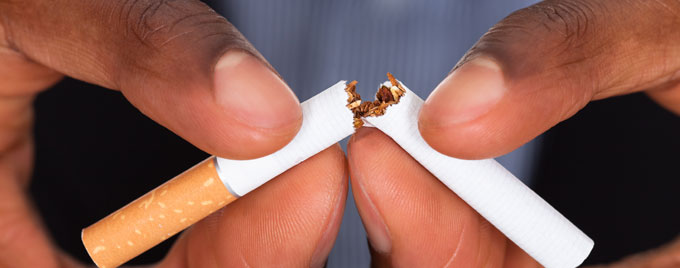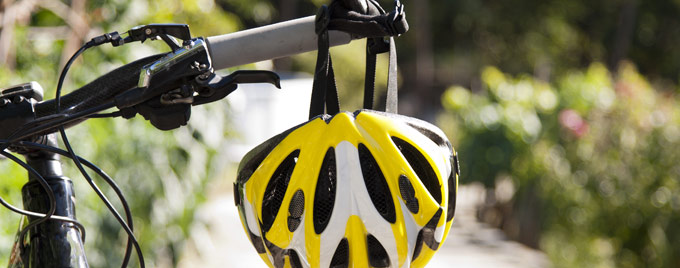There are over 350,000 cases of cancer each year in the UK and one in two people will develop some form of it during their lifetime.
The good news is that there are several things you can do to reduce your risk of developing cancer. Four in 10 cases of cancer are preventable, which means lifestyle changes or avoiding certain risk factors could have stopped them from developing.
Here are six things you can do to reduce your risk.
1. Stop smoking
Smoking increases your chance of getting cancer more than any other lifestyle factor. It’s linked to nearly one in five cancer cases in men and about one in six in women. It can cause at least 15 different types of cancer, with the most common being lung cancer.
When you smoke, dangerous chemicals from the cigarette, cigar or pipe tobacco go into your bloodstream and circulate throughout your body, which is why it’s linked to so many different types of cancer.
If you do smoke, stopping is the best thing you can do for your health. It’s never too late. The number of years you spend smoking is the biggest cancer risk factor. The sooner you can quit, the better your chance will be of avoiding smoking-related cancer. Read our tips for quitting smoking.

2. Avoid alcohol or at least drink it in moderation
Similar to smoking, alcohol is linked to several different types of cancer. When you drink, your body converts the alcohol into acetaldehyde, a toxic chemical that can cause damage to your DNA.
Drinking no alcohol is best. If you do drink alcohol, make sure you drink in moderation. In the UK, you’re advised to not drink more than 14 units per week on a regular basis.
You’re also advised to spread your alcohol drinking throughout the week and make sure you have several days in a week when you don’t drink at all.
3. Maintain a healthy weight
Being overweight increases your chances of developing a number of serious health conditions, including heart disease, diabetes and cancer.
Too much fat in your body can cause high levels of insulin (a growth hormone) and oestrogen (a hormone responsible for sexual and reproductive development in women), as well as inflammation — all of these factors stimulate the growth of cancer cells.
A number of cancers are linked to being overweight, including pancreatic, gall bladder and oesophageal cancers, which are three of the most difficult to treat.
A quick way to check whether you’re overweight is to work out your body mass index (BMI). Your BMI score tells you whether you are a healthy weight for your height. Everyone is different, but for most people, a BMI score of under 25 tells you that you are a healthy weight. You can work out your score easily by putting your weight and height into an online BMI calculator.
If you need to lose weight, combine eating a healthier diet with physical exercise. Reduce your portion sizes and try to avoid foods that are high in saturated fats and sugars, such as alcohol, fatty meat and dairy products. A food diary is a good way of keeping track of what you're eating and can help you cut down on unhealthy foods.
4. Eat healthily
Eating healthily is one of the best ways to look after your overall health and will reduce your chances of developing many serious conditions, such as heart disease, diabetes and cancer.
A healthy diet and the right number of calories will help ensure you maintain a healthy weight, but it can reduce your cancer risk in other ways too. Research shows that healthier diets could prevent one in 20 cancers from developing.
A healthy diet is typically made up of 50% fruit and vegetables, 25% protein from a healthy source (such as fish, beans or eggs) and 25% wholegrain carbohydrates, such as brown bread, brown pasta or potatoes.
Limit or cut out red and processed meat
Eating red and processed meat can increase your chances of getting colon and bowel cancer. Processed meat includes sausages, bacon and cured meats. Red meat includes beef, lamb and pork. Eliminating or limiting these foods in your diet will reduce your chances of getting cancer. Try switching to chicken or fish, or having meat-free days.
Up your fibre
Eating foods that contain a lot of fibre will also reduce your chances of developing bowel cancer. In the UK, adults are advised to eat at least 30g of fibre a day. A portion of whole wheat pasta has about 9g of fibre in it, and two slices of wholemeal bread have about 7g.
Fibre helps you open your bowels more often, so harmful chemicals found in the food you eat spend less time in your body. It also plays a role in creating butyrate (a fatty acid that feeds cells in your gut), which helps keep your bowel healthy and makes cancer cells less likely to develop.

5. Exercise and be physically active
Exercise and being physically active helps you maintain a healthy weight and it also plays a specific role in reducing your chance of developing breast cancer.
Breast cancer can be stimulated by high levels of oestrogen or insulin in the body. Being active can reduce your levels of both of these hormones.
Being physically active means doing any activity that makes you feel at least mildly out of breath. That could include specific exercises such as cycling or running, or daily activities like walking, doing the housework or gardening.
The Government advises taking at least 150 minutes of moderate exercise per week or at least 75 minutes of vigorous exercise per week.
6. Protect yourself from sunburn
While we all need some sun, it’s important to protect your skin from too much of it. The sun’s rays contain ultraviolet (UV) radiation that can damage the DNA in your skin cells and increase your chances of developing skin cancer.
If you’re outside in the sun — especially between April and October in the UK — make sure you wear a sunscreen that stops your skin from burning, avoid the midday sun and wear a hat and t-shirt.
The light from sunbeds also contains UV radiation, so you shouldn’t use them at all. It’s safer to use cosmetic tanning treatments.

